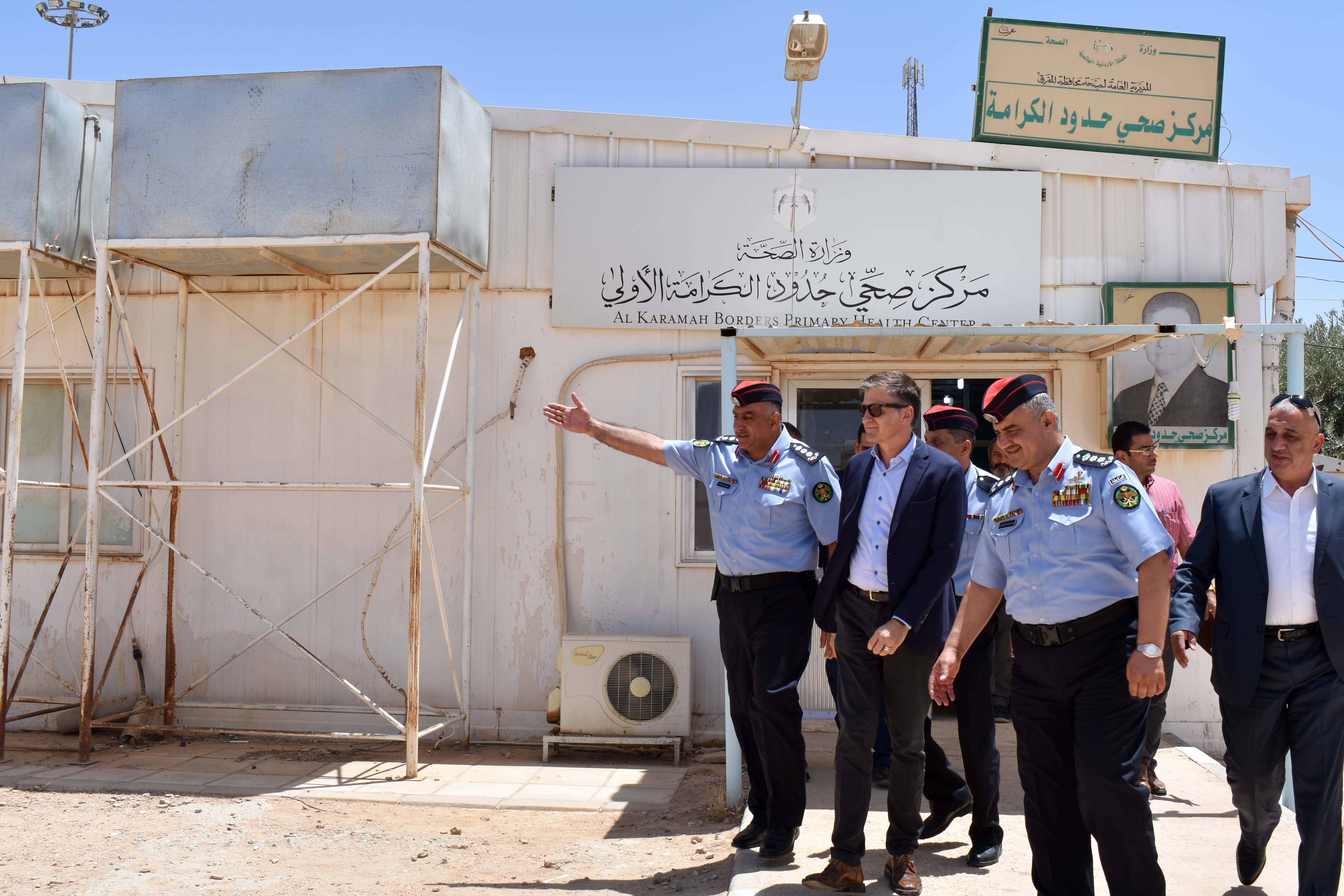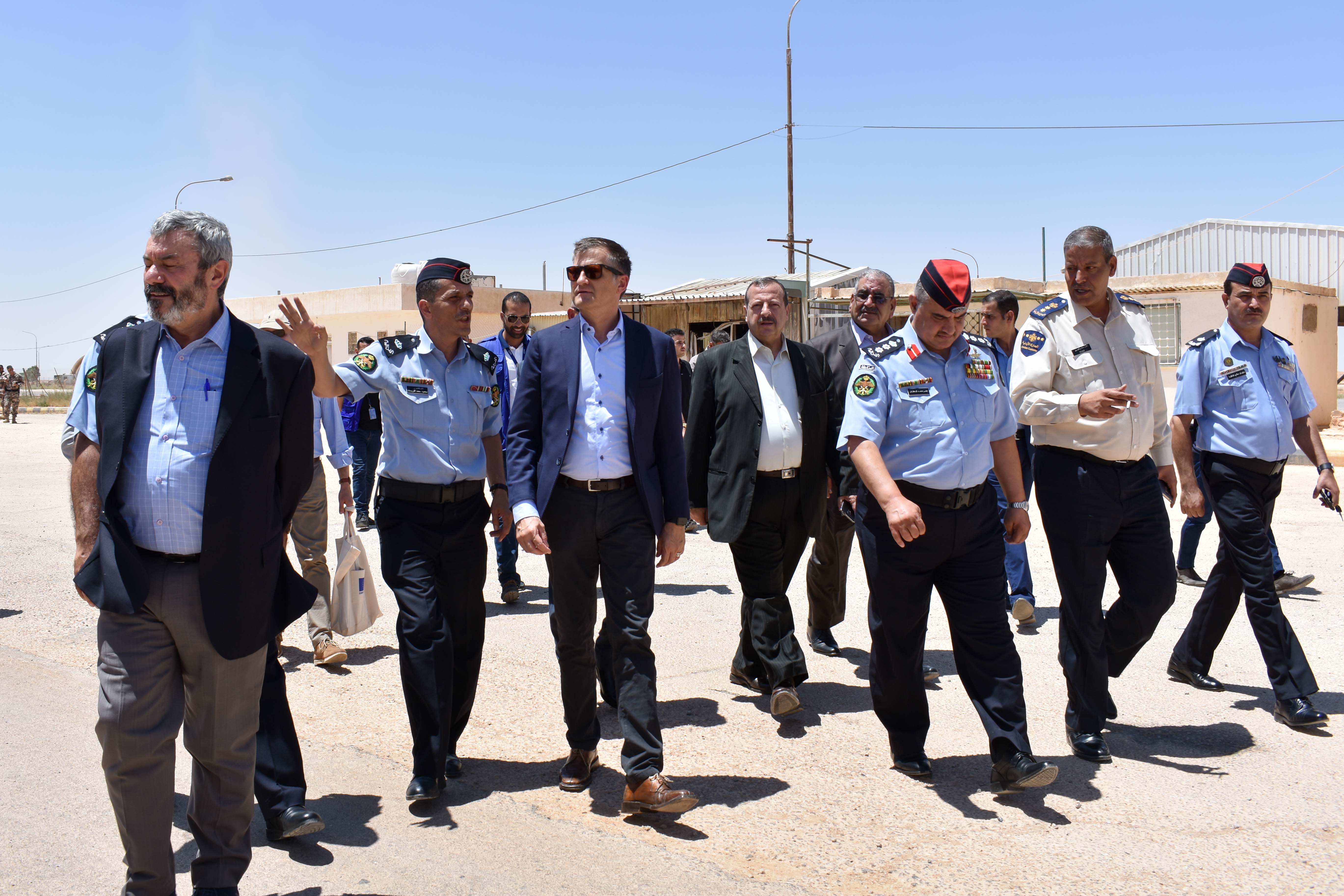-
Who We Are
WHO WE ARE
The International Organization for Migration (IOM) is part of the United Nations System as the leading inter-governmental organization promoting humane and orderly migration for the benefit of all. IOM has had a presence in Jordan since 1994.
About
About
IOM Global
IOM Global
-
OUR WORK
Our WorkAs the leading inter-governmental organization promoting since 1951 humane and orderly migration, IOM plays a key role to support the achievement of the 2030 Agenda through different areas of intervention that connect both humanitarian assistance and sustainable development. Across Jordan, IOM provides specific services to the Jordanian government to manage the migratory flows.
Cross-cutting (Global)
Cross-cutting (Global)
- Data and Resources
- Take Action
- 2030 Agenda
IOM, UNODC, EU start a new project to boost the economic exchanges between Jordan and Iraq
On Tuesday 24th of July a delegation of the European Union headed by the Ambassador of the EU to Jordan, H.E. Andrea Matteo Fontana, the Chief of Mission of the International Organization for Migration (IOM), Mr Enrico Ponziani, and the Head of UNODC Jordan Programme Office, Mr Amjad al-Adarbeh, visited the border crossing point of Karamah, the only commercial and passenger passage between Jordan and Iraq. The border post, that was re-opened on August 2017 after 3 years of closure, will be upgraded through a project funded by the EU’s Instrument contributing to Stability and Peace (IcSP) and implemented jointly by IOM and UNODC. The optimal use of UN agencies expertise and resources to support the Jordanian Government in areas of need has been established by the delivering as one approach, adopted by the UN in Jordan through the recently signed UN Sustainable Development Framework (UNSDF) 2018-2022, an instrument developed by the United Nations in consultation with the Jordanian Government to enhance opportunities and contribute to sustainability, job creation and security.
Karamah Border crossing point was reopened last August on a joint effort of the Jordanian and the Iraqi Governments to revitalize the trade between both countries. According to the World Bank, the closure of land routes due to the conflicts in Iraq and Syria is among the main reasons for the low economic growth of Jordan during the last years, as the deviation of the commercial routes through other countries increased significantly the price of importing and exporting goods from and to Jordan. The re-opening of Karamah was welcomed by the trade and transport companies, as well as by farmers and traders of agricultural products, as before the closure Iraq used to import fresh products directly from Jordan. The crossing served an average of 3,000 passengers and up to 5,000 trucks on a daily basis during the time it was fully operational, between 1992 and 2008.
The project aims at increasing the capacity of Karamah to increase the volume, speed the procedures and ensure the quality of the services received by companies and passengers whilst maintaining security of the border line. The project will address the infrastructural, equipment and procedural needs of the border post. A fully functional Karamah will also contribute to reopen the corridor between Iraq and Aqaba port, boosting the commercial traffic in this important gate of Jordan to the Red Sea.
During the visit, Ambassador Fontana and members of the EU Delegations to Jordan and Lebanon, as well as a representative of the EU in Brussels, met with representatives from the different departments in charge of passengers and cargo control in Karamah, including the Borders and Residency Department and Customs Department. Mr Adnan Abu al-Ragheb, Chairman of the Board of Directors of the Chamber of Industry, and Mr Hassan al-Ajarmeh, Head of the Transportation Committee in the Jordanian Parliament, joined the Delegation at Karamah to present on the relevance of the project for the private sector and boosting the Jordanian economy.


